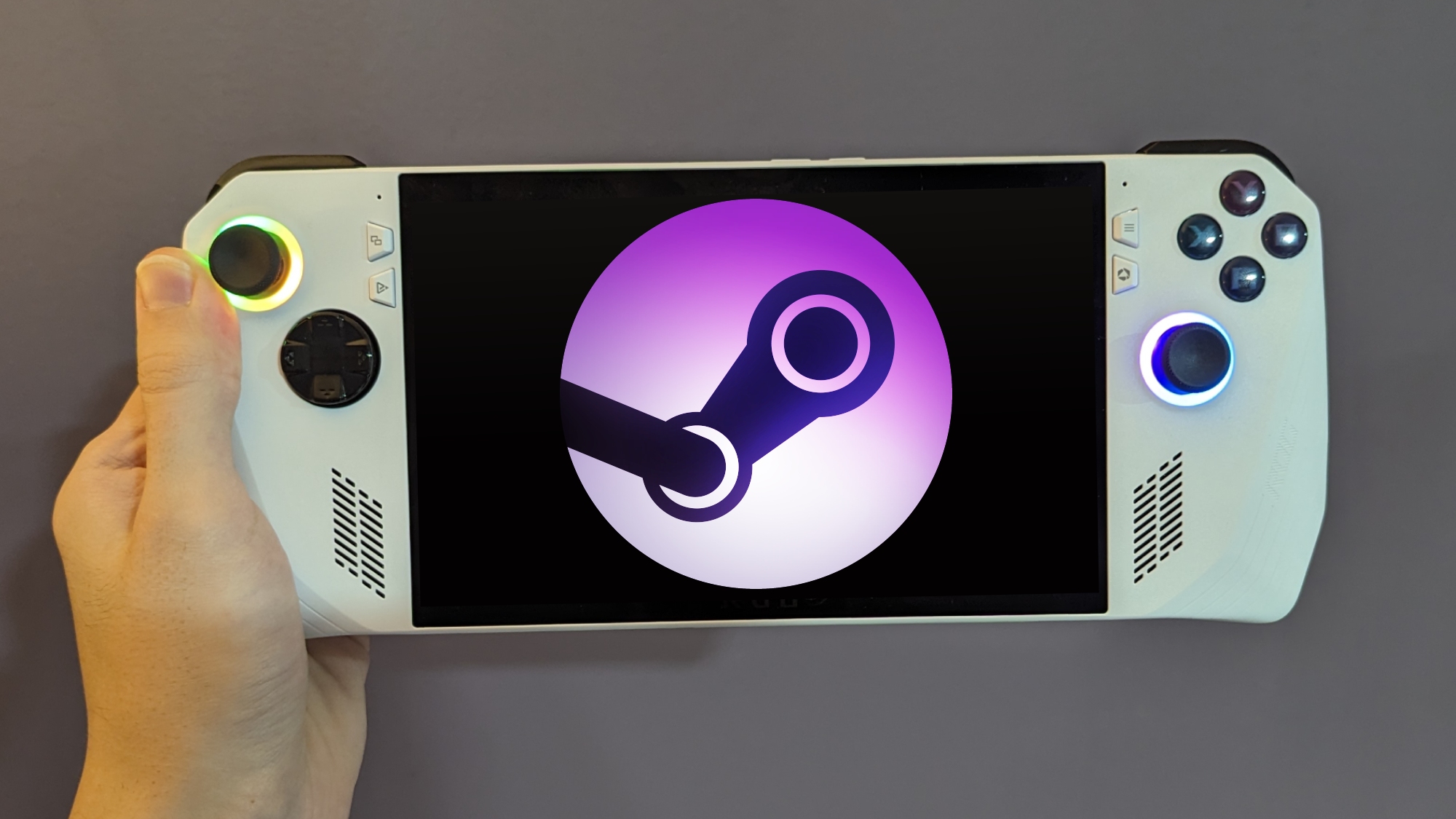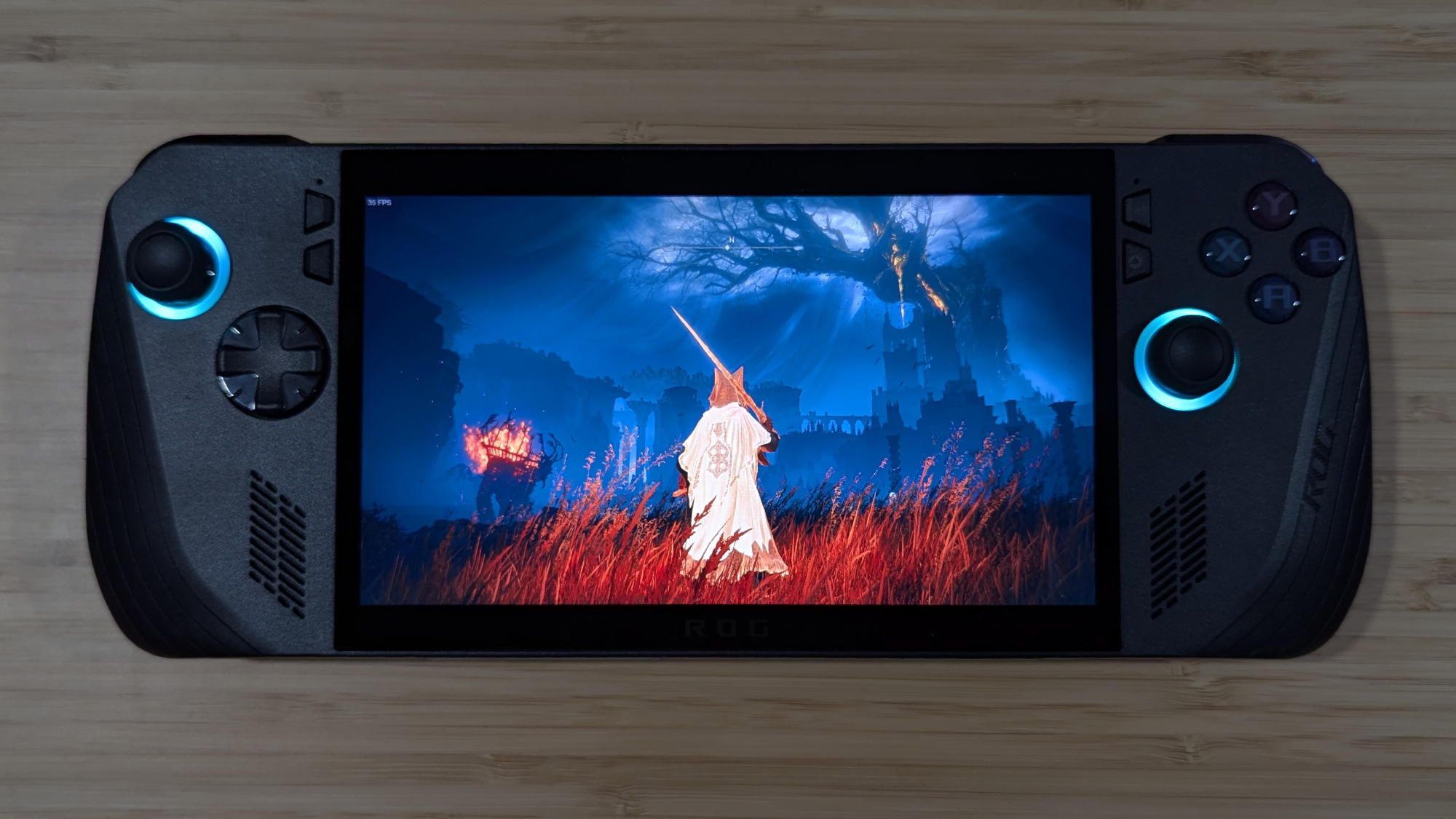Your ROG Ally doesn't suck, Windows 11 does
SteamOS proves just how demanding Windows 11 can be

Valve's Steam Deck received an update earlier this month that related to the inclusion of "Third-party device support for SteamOS." While the idea of running a lighter Linux-based operating system on a device as powerful as the Asus ROG Ally X was exciting, there are quite a few features I'd miss if I switched over.
Beyond what you're sacrificing by swapping to SteamOS, we didn't know the actual performance benefits that would come from making the jump to this operating system. Considering how demanding Windows 11 can be, we anticipated seeing some difference, though it was unclear how extensive it would be.
Thankfully, Tom's Guide went through the effort of getting SteamOS working on an Asus ROG Ally X on Monday, and after running several performance tests, we finally have the answer to how much this lighter Linux operating system could improve the Ally's performance.
SteamOS vs Windows 11 on Asus ROG Ally X
Asus ROG Ally X and Steam Deck sharing the same operating system removes one massive barrier that can create discrepancies in performance: Windows 11.
It's no secret that Microsoft's operating system is quite demanding, so by stripping it away, the two systems should be able to compete based on hardware alone.
But what exactly is the difference between an Asus ROG Ally X and a Steam Deck in specs?
The Asus ROG Ally X is built with an AMD Ryzen Z1 Extreme processor, which features AMD RDNA 3 graphics with 12 CUs, up to 2.7 GHz, and up to 8.6 Teraflops. Beyond that, it has 24GB of LPDDR5X-7500 RAM.
Stay in the know with Laptop Mag
Get our in-depth reviews, helpful tips, great deals, and the biggest news stories delivered to your inbox.
On the other hand, the Steam Deck boasts a 6nm AMD APU with AMD RDNA 2 graphics with 8 CUs, at up to 1.6GHz, and 1.6 Teraflops, and boasts 16GB of LPDDR5X-6400 RAM.

If none of that makes it clear, the implication is that the Asus ROG Ally X is built with far superior graphics compared to Valve's Steam Deck.
But don't just take our word for it, with Windows 11 out of the way, Tom's Guide's tests prove once and for all that the Ally is a far superior machine.
The website tested several games to measure how many frames per second each gets on the Asus ROG Ally X while running Windows 11. The titles included Cyberpunk 2077 (36 fps), Tetris Effect (46 fps), and Forza Horizon 5 (53 fps).
Comparatively, the website's tests while running SteamOS are quite a bit better and showcase exactly how far and beyond the gaming performance can go when it's not dealing with Windows 11. Framerate was higher in Cyberpunk 2077 (42 fps), Tetris Effect (61 fps), and Forza Horizon 5 (59 fps).
Tom's Guide also saw significantly improved battery life while running SteamOS on the Asus ROG Ally X. Cyberpunk 2077 (2:31), Tetris Effect (3:12), and Forza Horizon (1:26) lasted a pretty decent amount of time by all means on Windows 11. However, on SteamOS, Cyberpunk 2077 (3:05), Tetris Effect (3:46), and Forza Horizon (1:44) sometimes saw upwards of a 30-minute increase in longevity. Which, while seeming small, can make all the difference for those labored with long commutes or travel plans.
But why exactly is this happening?
SteamOS is lighter and focused
The benefit of a light operation focusing on specific functions will often yield greater performance when it's optimized correctly. SteamOS exists in tandem with the Steam Deck hardware, meaning games that are playable on the platform are explicitly optimized to do so.
Valve even has a specific badge for "Deck Verified" games, which features a little green checkmark when a title has been optimized for its hardware.
Windows 11 needs to accommodate many different configurations of devices. Thus, game developers need to consider how their titles run on that hardware, often leading to a wide-reaching and generic level of optimization. This is a big reason why consoles still do a decent job running modern, demanding titles even when the hardware is several years old.
Remember how the PlayStation 4 was capable of running The Last of Us Part II with a GPU that was manufactured in 2013 (when the game came out in 2020), meanwhile, the Part 1 Remaster uses the same engine and gives modern PCs trouble when gamers try to run it on their hardware?
This is the power of optimization on light operating systems, and while it won't necessarily perform miracles, there's an undeniable advantage here.
While we need to see more tests performed, this early report from Tom's Guide is exciting and could prove that there's a massive amount of further potential within your Asus ROG Ally X just waiting to be unleashed. Theoretically, any Windows gaming handheld could receive the same benefits, too.
Sure, you'll sacrifice the flexibility of other storefronts like Xbox or Epic Games, but whether or not that risk is worth it is up to you to decide.
More from Laptop Mag

Self-described art critic and unabashedly pretentious, Claire finds joy in impassioned ramblings about her closeness to video games. She has a bachelor’s degree in Journalism & Media Studies from Brooklyn College and five years of experience in entertainment journalism. Claire is a stalwart defender of the importance found in subjectivity and spends most days overwhelmed with excitement for the past, present and future of gaming. When she isn't writing or playing Dark Souls, she can be found eating chicken fettuccine alfredo and watching anime.
